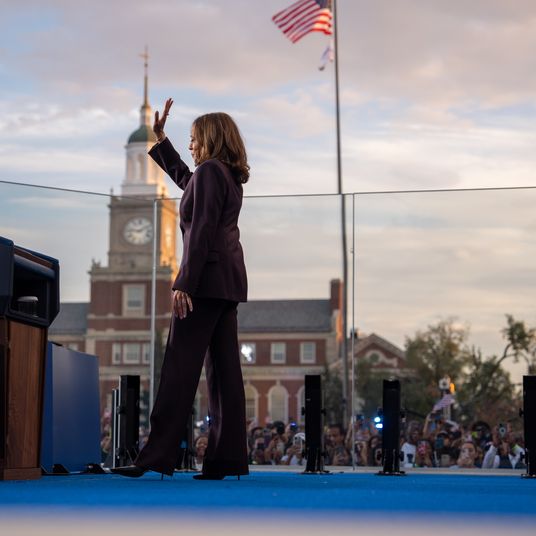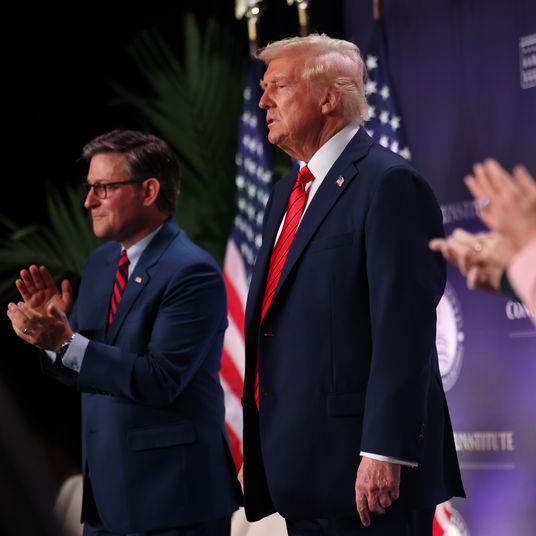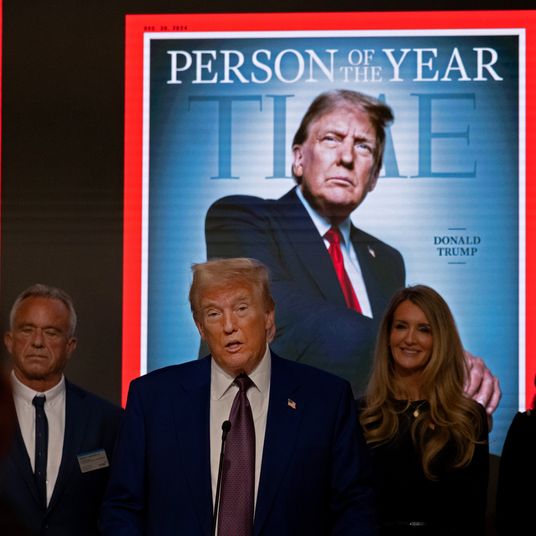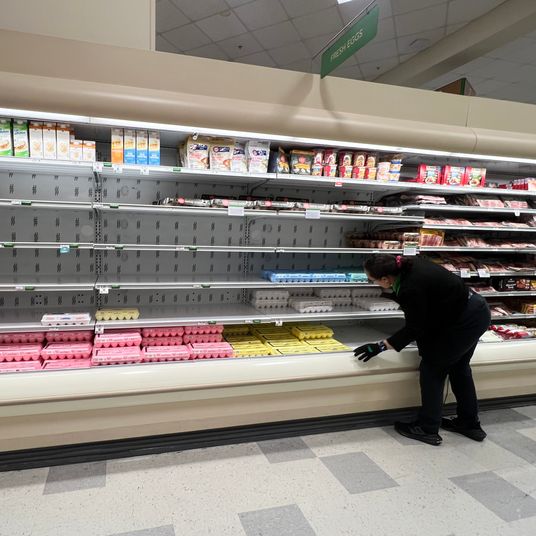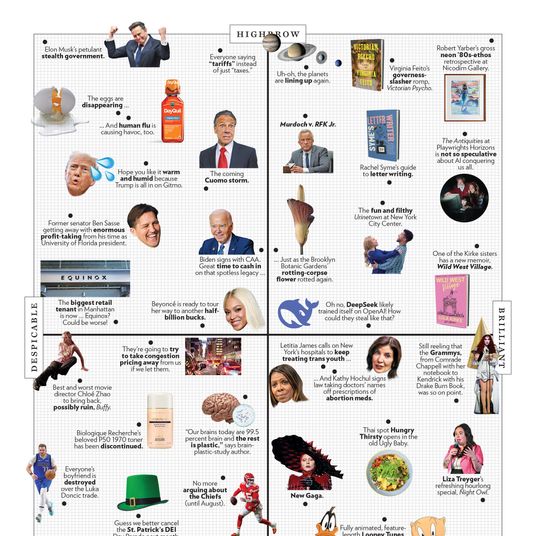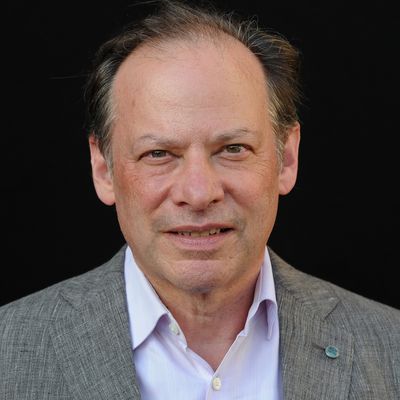
Adam Gopnik’s new book, A Thousand Small Sanities, is a short but stirring defense of liberalism’s philosophical tradition and continued relevance against its critics on both the left and the right. I spoke with the author recently. A condensed transcript follows.
I was struck by the fact that you directed the book to your children, especially your daughter. I was struck by that motivation, the kind of sense of almost generational loss, or fear of loss, and I wanted to know if you saw any parallels to the ’60s, because that seems like another time when liberals felt like this younger generation was going off in a more radical, illiberal direction. Is that a parallel that struck you?
I am old enough to remember the New Left. And it’s certainly the case, right? And I see it with a certain amount of irony, that I am someone in the Irving Howe position. If you remember, Irving Howe, bless his memory, was driven somewhat batty by what happened in the ’60s. In the long run, Irving Howe was right about pretty much everything and the New Left was wrong about pretty much everything. But nonetheless, there was this generational gap and with it … a gap of style as much as anything else.
In other words, when 20-somethings put on a hammer-and-sickle cap or, you know, write for Jacobin or something, they’re not really absorbing those values in a completely serious way. Instead, they’re seizing on symbols of romantic rebellion and resistance that seem to them necessary in a context in which reality itself has been sufficiently distorted to make some kind of compensatory symbolism necessary. Now, curiously, Olivia — who I represent in the book as being to my left, which she was, but she was only because she’s a Jewish polemist at heart and she just will argue any side of anything with you, which is frankly how she was raised — now, she’s significantly to my right, as a matter of fact. She’s moved well to my right, in fact, and is impatient, much more impatient, with the pieties of progressivism than I am because she has to live with them every day and I have not read them, you know, once a week.
She’s surrounded by woke Twitter …
Exactly. And so she, you know, finds the necessity of signing every last X on the contract of progressive pieties exhausting and, in a moment of emergency, somewhat ridiculous. So she was much more upset with — not upset, indignant about — the Democratic [presidential] debate than I was. She thought it was crazy for having all of these virtue tests and all this virtue signaling when all that mattered is defeating Trump, right? And basically everyone should be standing up and saying, “We are at a unique crisis in American history. I think I can defeat … I think I can slay the monster better than the next hero can slay the monster,” not “My health-care program is .0025 percent more private or more public than the next guy’s.”
To return to your question, yes, I think that there’s a strong resemblance …and I try to be very honest about this in the book. Inevitably, liberals are always at a rhetorical disadvantage to leftists because leftists have a program and a set of axioms and the glamour of radicalism. And liberals have an inherited temperament, empirical evidence, and pragmatic truth on their side. In the long run — and this was true about the ’60s, too, you know? — the liberals look extremely good.
That’s one of the reasons I raised Bayard Rustin as a hero in the course of the book. Rustin now looks like a fount of common sense. You know, he’s a totally, in the proper sense, radical figure. He organizes the March on Washington. He goes to prison 24 times. In no imaginable sense is he a centrist. But when black nationalism becomes the dominant strain, he says, “This makes no sense for us as a people. To be isolated outside a broader coalition of progressives.” And he was excommunicated, again, from the movement for saying that and he remains a staunch member of the Democratic Party and, not least, vehemently anti-communist throughout his entire career.
There’s a sense of defensiveness and loss in your book, but maybe we’re just looking at a very transitory period.
There are two things to think about. One is that it’s slightly absurd that in talking — not about this book alone, I’m talking about the current crisis — that I at least end up talking so much about illiberal threats from the left and the potential authoritarian tendency, because although true, it’s more or less a remote and hypothetical problem, you know? Bernie Sanders might, heavy emphasis on might, produce the Corbynization of the Democratic Party — that’s not impossible to imagine, but it hasn’t happened yet. On the other hand, extreme right-wing triumphalist authoritarianism is actually in power in the country now and has a terrifying chance of remaining in power in the country.
So that’s a way in which the situation does not resemble the ’60s at all, or at least not till the Nixon period, and even in the Nixon period, it was not remotely as great a threat to constitutional order and liberal principles as we’re undergoing now. So whatever else may be true, the essential and potent threat is certainly not coming from the left at this moment in history.
At every moment I can recall, and certainly historically, liberal democracy has been pronounced—and liberal values and liberal humanism and all the things I’m evangelizing for in this book have been pronounced—dead. In the 1930s, and it’s hard for us to recapture this … every significant intellectual had given up on liberal values and liberal democracy as something that’s clearly vestigial, and that one would have to choose sides between the oncoming fascist right and the oncoming communist left. That wasn’t a few people; that was essentially everybody. And the ones who didn’t only didn’t after they had been disillusioned by a specific one of those other forces. And the number of people who, in 1937 and 1938, were saying, “No, you know what? Liberal democracy, liberal humanist values are not only right but they’re resilient and will be enormously strong.” Negligible.
But they turned out to be right. They turned out to be right. And then again in the Cold War. You’re too young to remember, but I can remember going down to the public school’s basement in Philadelphia to hide from the commie bombs that were coming, seeking out the schoolchildren. Read Time magazine at that period, around 1959, 1960. And Time, the bible of the American dentist, was saying, you know, “America must morally rearm; the confusion and decadence of liberalism is such that we are utterly vulnerable to the disciplined organization of the communist model. And they’re taking over Europe.” People know — I know this is a little off the thing, but people now forget — that what Ronald Reagan was saying in 1980 was not, “We can defeat the Soviet Empire” but—
“It’s too strong.”
But the Soviet Empire is too strong! It’s winning! They’re taking over.
Did you read the piece in the Washington Post criticizing the book? [It argues that Gopnik should be more receptive to criticisms of liberalism because Obama’s liberalism failed.]
My counterargument, with which you alone might be sympathetic, is that Obama didn’t fail; Obama succeeded in every significant sense and where many refused to see how much he succeeded.
With every imaginable reason and desire to destroy the Affordable Care Act, they haven’t been able to do it, because it clearly filled a necessary function, and they won’t be able to destroy it, and if somebody gets elected, again, it will only be strengthened, and I am totally confident that within 25 years, we’ll have national health insurance in America.
So when I wrote about Obama and when I wrote about things like the ACA, I had a lot of the same sense of besiegement — it’s so hard to explain, no one can be for it because it’s too complicated, all the passions are against it on both sides — so there’s that feeling, and yet it endures. I don’t feel like I’ve identified what it is exactly that allows that pattern to keep happening in history: loss, loss, loss, loss, loss leads to victory in the end.
Well, as I say in the book, liberals get nothing accomplished except everything eventually. And that’s a historical pattern, and that’s why I write in such length, partly because I love them, but also because I think they’re representative — this about George Elliot and George Henry Lewis — because they were liberalisms of process. You had a philosophy of evolution and emergence that wasn’t weak, that was in fact the most powerful philosophy.
Does liberalism require a left opposition?
No, I don’t think so; this is a complicated answer. Forgive me; it’s one of those two-part things. One of the things that for me is thematic in this book is that liberalism is not centrism.
Liberalism is a form of radicalism of the real. I open the book with John Stuart Mill and Harriet Taylor exactly because there was nothing remotely centrist about their political project. Mill’s was for absolute liberty of expression and speech. Taylor’s, and theirs together, was for the complete economic and political emancipation of women, yet they totally self-identified as liberals.
But they recognize that it was the principles required to progress, that it was going to take time, persuasion, and propaganda and work to bring those things to fruition. And they never got discouraged, even though by the time Harriet died, too young, the emancipation wasn’t even remotely on the horizon. Wasn’t even on the horizon when Mill died. Didn’t discourage them from thinking about it. So liberalism is not centrism. And incrementalism is not a principle of liberalism; it’s part of the affect of liberalism. Because incrementalism is not in itself desirable. And I don’t think Barack Obama ever thought incrementalism was in itself desirable. If he could have brought in the Affordable Care Act with a public option two days after he was inaugurated, he would have done it.
If he could have passed single payer, he would have done it.
If he could have passed single payer, he would have done it in a minute. It’s not a lack of will or a tepid unwillingness to confront a big problem. He simply did not have the votes, and he respected parliamentary pluralism. That was the reality he had to deal with, and within that reality, he would do the very best he possibly could. That’s what liberalism was. Radicalism with the real. That’s one way of looking at it. There is a more complicated and interesting passage I tried to illuminate in the book by making [Frederick] Douglass central to the book.
Douglass I do not instance as a liberal hero. I hived him off to the end of the chapter in the left critique exactly because he’s not simply a liberal in the sense that Mill or Taylor or Lincoln are. He is an extraordinary figure, because he’s both a radical prophet and a liberal politician. And at that crucial moment in American history — there’s a pivot in American history; it’s when Douglass makes his not-quite–Fourth of July speech, right? When everyone around him is saying the Constitution is hopelessly corrupt. The system is hopelessly corrupt. Exactly in the same tones that it’s said now. And Douglass, the greatest abolitionist of his time, says, “No, it isn’t, there’s nothing wrong with the Constitution, the Constitution is a great liberty document. What’s wrong is the Constitutionalists. What’s wrong is our understanding of it.” It’s the first articulation of pure, unadulterated Obamaism in history.
And on the basis of that understanding, Douglass decides not to go south with John Brown, who’s a friend, and who’s a man he admires, but to go north with Lincoln, essentially. And Lincoln drives him crazy because Lincoln is a compromiser and Lincoln is a prevaricator and Lincoln toys with colonization and a million things. But Douglass recognizes that Lincoln’s path of constitutional warfare as it happens can actually mark an end to slavery in the possible future. And he never leaves the Republican Party.
So Douglass is to my mind the greatest American because he embodies both radical prophet and liberal politician. And understands both of those and, in that sense, reminds us that we always need the radical prophet. I think that Obama, to come back to him, always respected that reality. It’s why he welcomed Ta-Nehisi [Coates] to the White House.
So that’s the question I was coming back around to. The argument I get from the more pragmatic leftists is, “You need us. You may not agree with us, but you need us. Without us, you simply get crushed by the right.” Maybe liberalism isn’t simply centrism, but what they’re saying is it has more effectiveness when it’s in the center.
Let’s imagine that we suddenly in 2020, we emerge with an international coalition — you know, Legion of Justice, right? — that we entrust with power, that was headed by Naomi Klein and seconded by AOC and strung out like the Avengers and all of justice, right? The moment they actually started trying to make the kinds of changes, the scale they wanted, they would provoke resistance. Not because the evil big corporations on the other side were evilly conspiring to do it, but because in a pluralistic society many people have many different interests.
And the question is always, how do you deal with the resistance to your ideas? That’s the crucial question. And it’s a question that liberals have a good answer for. They say you’re patient, you placate, you persuade. And over time, the boat, in Obama’s beautiful phrase, begins to move. The great big boat begins to move. And if you look at any one moment, it looks like it hasn’t moved at all, and you look back over a lifetime, and you say, Oh my God. We’re on a totally different life course than we were 50 years ago. And we live with that reality every day. There’s never been, in my mind, a satisfactory radical, certainly never a satisfactory Marxist answer, to that predicament. And every radical and Marxist government that’s ever been in power has floundered, catastrophically, on the inability to answer that question, what do you do with dissent?
Because it doesn’t recognize pluralism as a normal characteristic of society.
Yes, exactly. Because it believes that one part of society — and this is deeply in the DNA of Marxism — is in possession of historical destiny, and the moral truth, and the rest of society is not. You have that picture, then Leninism flows very naturally. You could certainly have a socialist society with liberal institutions.
You’re talking about economic socialism and political liberalism.
Yeah. And Hayek said, in 1945, “No, you can’t, that’s impossible.” And the Atlee government [controlled by the British Labour Party] said “Yes, you can,” and they did! I hope one of the minor originalities of this book, Jon, and maybe it’s not minor, is that I think that you have to see European social democracy and Canadian social democracy as part of the genealogy of the liberal tradition.
Anyway, my point is this, that I think you can only understand European and Canadian social democracy, social-democratic movements, as within the context of liberalism. Let us never forget that John Stuart Mill sat in the Parliament as a socialist. That his identity was as a liberal and a socialist and there was no conflict between believing passionately in liberal institutions and believing in economic reform, including nationalization and important sectors of the economy like health care.
So I know you don’t want to name current names, but wouldn’t Bernie Sanders qualify as a political liberal and an economic socialist for the most part?
He’s certainly not Donald Trump. He’s not someone whose starting premise is that liberal institutions are ridiculous and only power and gangster ethics count. Anybody who accused him of that, I think, would be crazy.






















